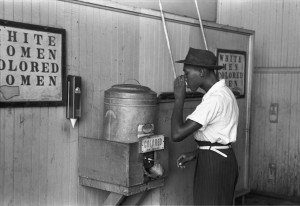Something is being taught in Oklahoma that is shocking and disturbing to parents and Republican state legislators alike. In an effort to protect the delicate minds of our youth, this subject was overwhelmingly voted to be banned by Oklahoma lawmakers. What is this controversial subject that so horrifies our beloved leaders? AP United States History. This month, Oklahoma Republican Representative Dan Fisher introduced a piece of legislation that “prohibited the expenditure of funds on the Advanced Placement United States History course.” Fisher’s argument against the school course is that it “only teaches students what is bad about America” and that it fails to teach “American exceptionalism”. The house bill that is estimated to cost Oklahoma taxpayers 3,851,500 dollars passed 11 to 4, Republicans for and Democrats against.
The bill is summarized as follows: “HB 1380 directs the State Department of Education to identify and adopt a U.S. History program and corresponding test to offer in lieu of the AP U.S. History course and test by the 2015-2016 school year. The measure specifies numerous foundational and historical documents that must be included in any U.S. History course offered in schools. Additionally, the State Board of Education is prohibited from awarding any grants to school districts, or make any expenditure of state funds as authorized, for equipment, instructional materials, course development, professional development or training, examination awards or examination scholarship for the AP U.S. History course until the course reverts back to the framework and examination in place prior to the 2014-2015 school year.”
It’s also to be noted what Fisher plans to replace the AP US History course with: “(The new framework) trades an emphasis on America’s founding principles of Constitutional government in favor of robust analyses of gender and racial oppression and class ethnicity and the lives of marginalized people, where the emphasis on instruction is of America as a nation of oppressors and exploiters”. Fishers new course includes a “selection of religious sermons, the Ten Commandments, and several Ronald Reagan speeches,” and that while “the bill specifies many non-controversial course materials, including the Federalist Papers and other founding documents, the Magna Carta, United States Supreme Court decisions, Franklin D. Roosevelt’s first inaugural address, and Kennedy’s inaugural address” it contains “nothing from any Democratic president since Lyndon Johnson.”
Fisher’s campaign is only a tip of the iceberg, however. The Republican National Committee also feels that the Advanced Placement U.S. History test “deliberately distorts and/or edits out important historical events.” RNC states that it “reflects a radically revisionist view of American history that emphasizes negative aspects of our nation’s history while omitting or minimizing positive aspects.” This prompts others to wonder whether it is the 245 years of slavery, the Japanese internment camps, or the fact that women weren’t allowed to vote until 1920 that makes Dan Fisher so uneasy with American history. A representative from the College Board calls the claims against AP US History “mythology and not true.”

Fisher’s bill would erase the “bad” history in The United States, including racial segregation. Image Credit: Wikipedia
Critics of campaigns such as Fisher’s find his viewpoint worrying. While a sense of patriotism is important to maintain, many uphold that it is possible to study history while preserving a sense of national pride. Concern is expressed that the sanitation of American history will lead to a repeat, or simply will not give certain events the acknowledgement that they deserve. All countries have some negative transgressions in their past, but its important to learn from them. To ignore the unpleasant portions of American history is to ignore events that helped shape the nation from the genocide of Native Americans to Watergate. In their editorial titled, “Effort to ban AP history in Oklahoma is ignorant,” The Tulsa World argues that history courses should teach the “full range of American history: the good, the bad and the exceptional.”
In the end, one must speculate as to how successful this attempt to blacklist American history in the name of patriotism will be. The passing of the bill has already sparked outrage from educators and students across the country. Students are objecting on both moral and financial grounds, pointing out that taking AP courses often saves them thousands of dollars if they score high enough on the AP test to receive college credit. A similar effort by a conservative school board in Colorado to make the Advanced Placement U.S. History course “more patriotic,” in which “students would only be taught lessons depicting American heritage in a positive light, and effectively ban any material that could lead to dissent,” prompted a walkout by students.
Update: As of Feb. 15, the bill has been withdrawn for a “rewrite”. Fisher explains that the bill was “very poorly worded and was incredibly ambiguous.”

